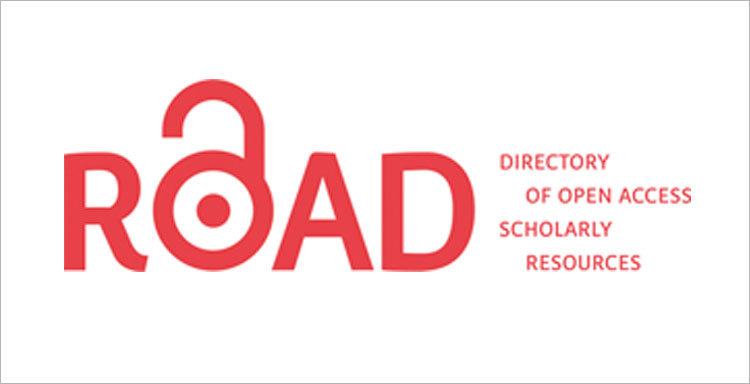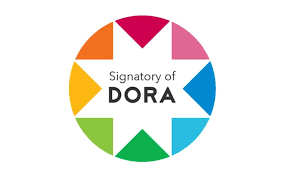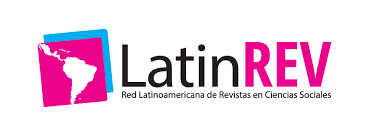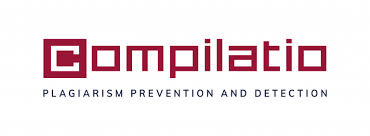Towards sustainable management in a rural territory: Multidimensional approach in Ecuadorian coast.
DOI:
https://doi.org/10.56124/sapientiae.v7i14.0009Keywords:
Social surveys, environmental management, land resources, sustainable development, development strategiesAbstract
This work proposes to evaluate economic, ecological, and social parameters of a territorial unit that allows for sustainable development strategies. The case study is a territory on the central coast of Ecuador, which includes a reserve zone belonging to the National System of Protected Areas and surrounding populations. We established indicators for each dimension and collected data through semi-structured surey and field measurements. We then performed a normalisation process and scored the results using the Biogram scale. A separate value was determined for each dimension. The results show that the ecological dimension (0.74) is considered stable. The economic dimension has 0.45 considered as unstable. While the social dimension, with (0.63) shows stable category. The integral valuation of sustainability in the area resulted in 0.61, considered a stable situation. This multidimensional approach provides valuable information to guide future investment actions and government planning.
Downloads
References
Brundtland, G. H. (1987). Report of the World Commission on environment and development:" our common future.". United Nations.
Bezdushna, Y., Prodanchuk, M., Zhuk, V., & Popko, E. (2023). Rationale of Management Principles of Providing Sustainable Development of Rural Territorial Communities. International Journal of Information Technology Project Management, 14(1). https://doi.org/10.4018/IJITPM.323209
Drexhage, J., & Murphy, D. (2010). Sustainable development: from Brundtland to Rio 2012. United Nations Headquarters, New York, 9–13.
Forestal, E. (2007). Planificación Estratégica Bosques Nativos en el Ecuador. Quito, Ecuador.
Gudynas, E. (2011). El buen vivir o la disolución de la idea de progreso. Polis, Revista de La Universidad Bolivariana, 10(29).
Hausmann, R. (1997). Latin America After a Decade of Reforms: Economic and Social Progress. In Latin America: 1997 Report. Washington: Inter-American Development Bank.
Hawkins, R. (2020). Our War Against Nature: Letters from the Front. In Human Security in World Affairs (2nd edition). BCcampus & University of Northern British Columbia. Victoria, BC. Retrieved from https://opentextbc.ca/humansecurity/
Kovalenko, E. G., Polushkina, T. M., Yakimova, O. Yu., & Akimova, Y. A. (2022). A Conceptual Model for the Development of Rural Territories of Regions Based on the Principles of Green Economy. Regionology, 30(4). https://doi.org/10.15507/2413-1407.121.030.202204.799-822
Kurdyukov, V., & Kanurny, S. (2021). Contradictions and barriers to sustainable development of territories. E3S Web of Conferences, 273. https://doi.org/10.1051/e3sconf/202127308101
MAE. (2017). Plan de manejo. Refugio de vida silvestre marina y costera Pacoche. Retrieved from https://www.conservation.org/docs/default-source/ecuador-documents/plan-de-manejo-de-pacoche.pdf
Nelson, K. S., Nguyen, T. D., Francois, J. R., & Ojha, S. (2023). Rural sustainability methods, drivers, and outcomes: A systematic review. Sustainable Development 31(3). https://doi.org/10.1002/sd.2471
Novichkov, N. & Novikov, V. & Novichkova, A. & Savchenko, E. (2023). Strategic sustainability of socio-territorial systems on the example of rural territories. Mezhdunarodnaja jekonomika (The World Economics). 178-193. 10.33920/vne-04-2303-04.
Piao, X., & Managi, S. (2023). The international role of education in sustainable lifestyles and economic development. Scientific Reports, 13(1), 8733. https://doi.org/10.1038/s41598-023-35173-w
PNUD. (2006). Nota Técnica 1. Calcular los Índices de Desarrollo Humano. Informe Sobre Desarrollo Humano 2006. Más Allá de La Escasez: Poder, Pobreza y Crisis Mundial del Agua, 393–422.
Raya, R. K., Kar, S., Kumar, D., & Gupta, R. (2022). A Sustainable Integrated Rural Water Management with emphasis on Network Prioritization, Household Water Treatment and Real-Time Feedback. 2022 IEEE Conference on Technologies for Sustainability, SusTech 2022. https://doi.org/10.1109/SusTech53338.2022.9794202
Rincón, A., Pérez, D., & Romero, A. (2006). Agricultura Tropical Sustentable y Biodiversidad. Revista Digital CENIAP HOY, 11.
Rondinelli, D. A. (1979). Administration Of Integrated Rural Development Policy: The Politics of Agrarian Reform in Developing Countries. World Politics, 31(3). https://doi.org/10.2307/2009995
Salas-Macías, C. A., Alegre-Orihuela, J. C., & Iglesias-Abad, S. (2017). Estimation of above-ground live biomass and carbon stocks in different plant formations and in the soil of dry forests of the Ecuadorian coast. Food and Energy Security, 6(4). https://doi.org/10.1002/fes3.115
Schneider, S. (2014). La agricultura familiar en América Latina: Un nuevo análisis comparativo. Santiago, Chile: Fondo Internacional de Desarrollo Agrícola (FIDA). Centro Latinoamericano para el Desarrollo Rural (RIMISP).
Sepúlveda, S. (2008). Biograma. Metodología para estimar el nivel de desarrollo sostenible de territorios. San José: Instituto Interamericano de Cooperación para la Agricultura (IICA).
Semenchuk, T., & Postika, B. (2023). Public management of sustainable development of territories. https://doi.org/10.36074/logos-23.06.2023.10
Sevilla, R., & Holle, M. (2004). Erosión genética. Recursos Genéticos Vegetales. Lima: Ediciones Torre Azul SRL.
Sourisseau, J.-M. (ed.). (2016). Las agriculturas familiares y los mundos del futuro. In AgriculturaS y retoS mundiales. San José: Instituto Interamericano de Cooperación para la Agricultura (IICA). Centre de coopération internationale en recherche agronomique pour le développement (CIRAD). Agence Française de Développement (AFD).
Suquilanda, M. (1996). Agricultura Orgánica, alternativa tecnológica del futuro. Quito: Edic. UPS, Fundagro.
Wieliczko, B., Kurdyś-Kujawska, A., & Floriańczyk, Z. (2021). EU rural policy’s capacity to facilitate a just sustainability transition of the rural areas. Energies, 14(16). https://doi.org/10.3390/en14165050

Published
How to Cite
Issue
Section
License
Copyright (c) 2024 Revista Científica Multidisciplinaria SAPIENTIAE. ISSN: 2600-6030.

This work is licensed under a Creative Commons Attribution-NonCommercial-ShareAlike 4.0 International License.

2.jpg)


















